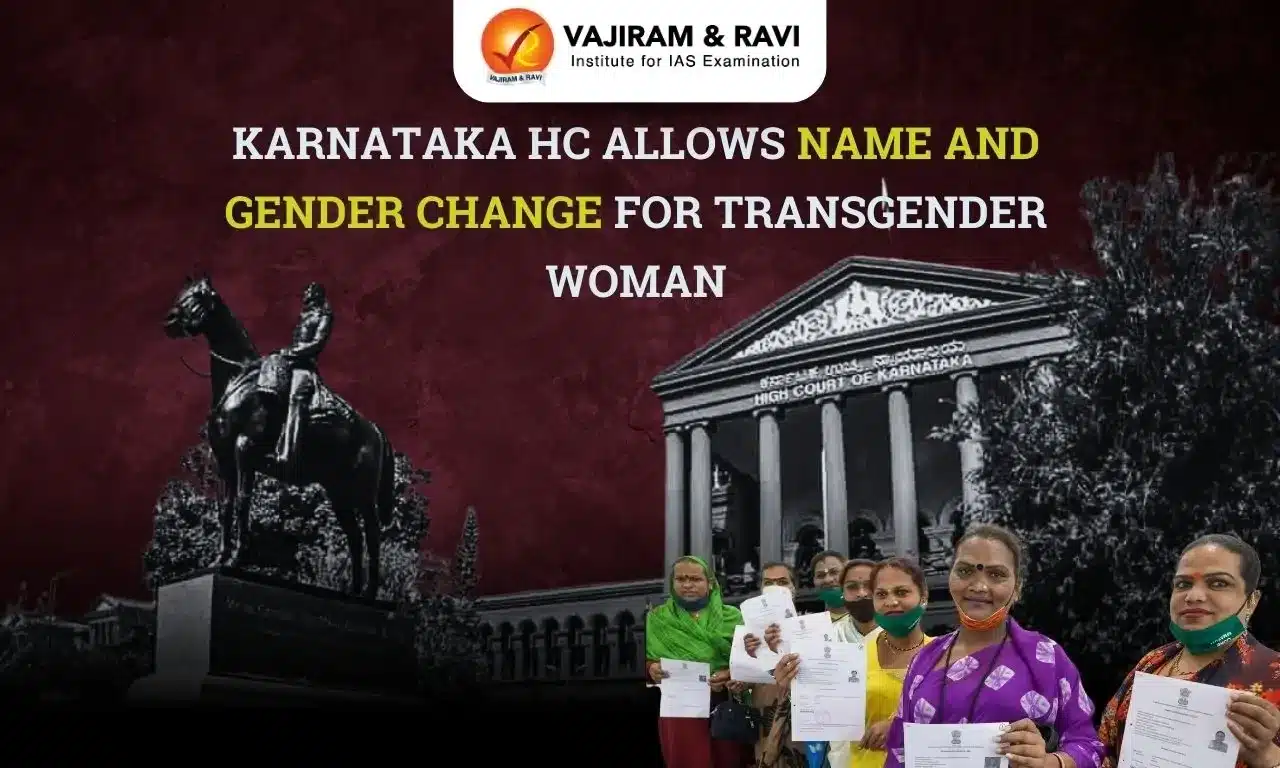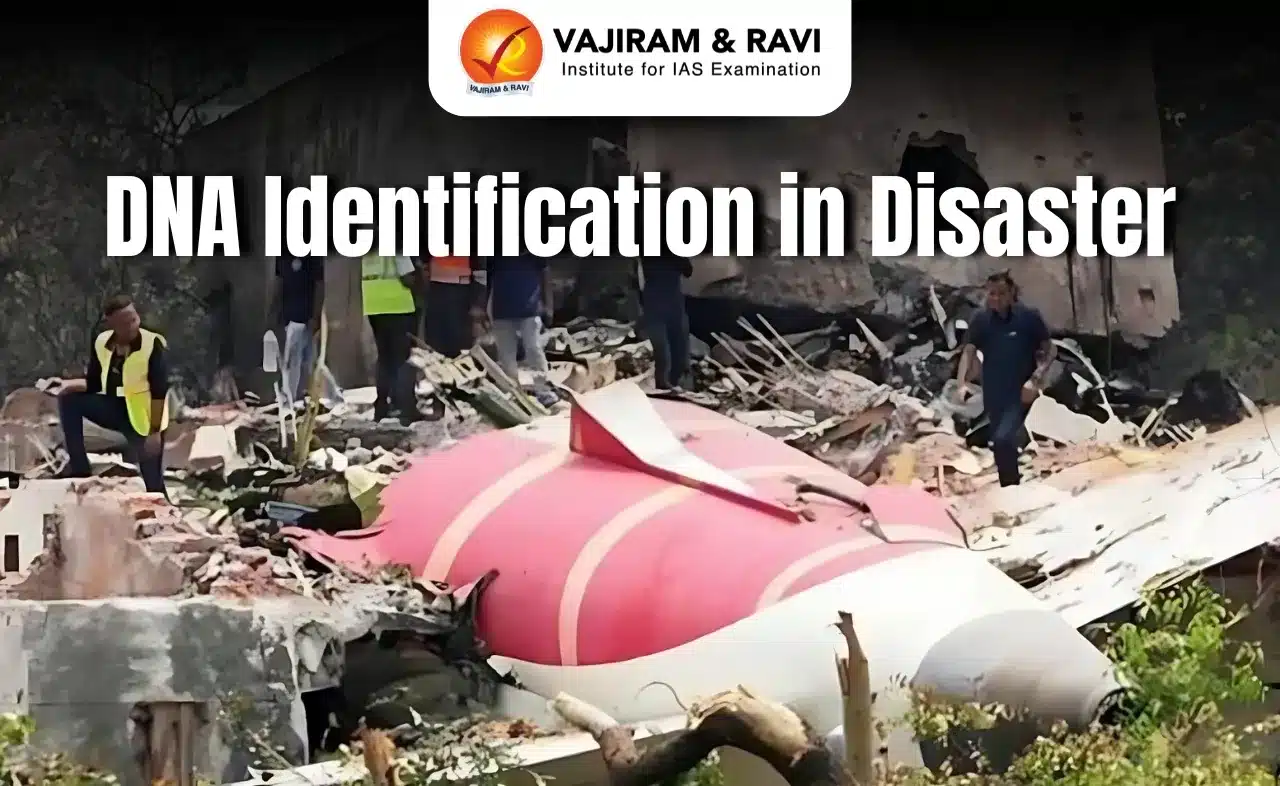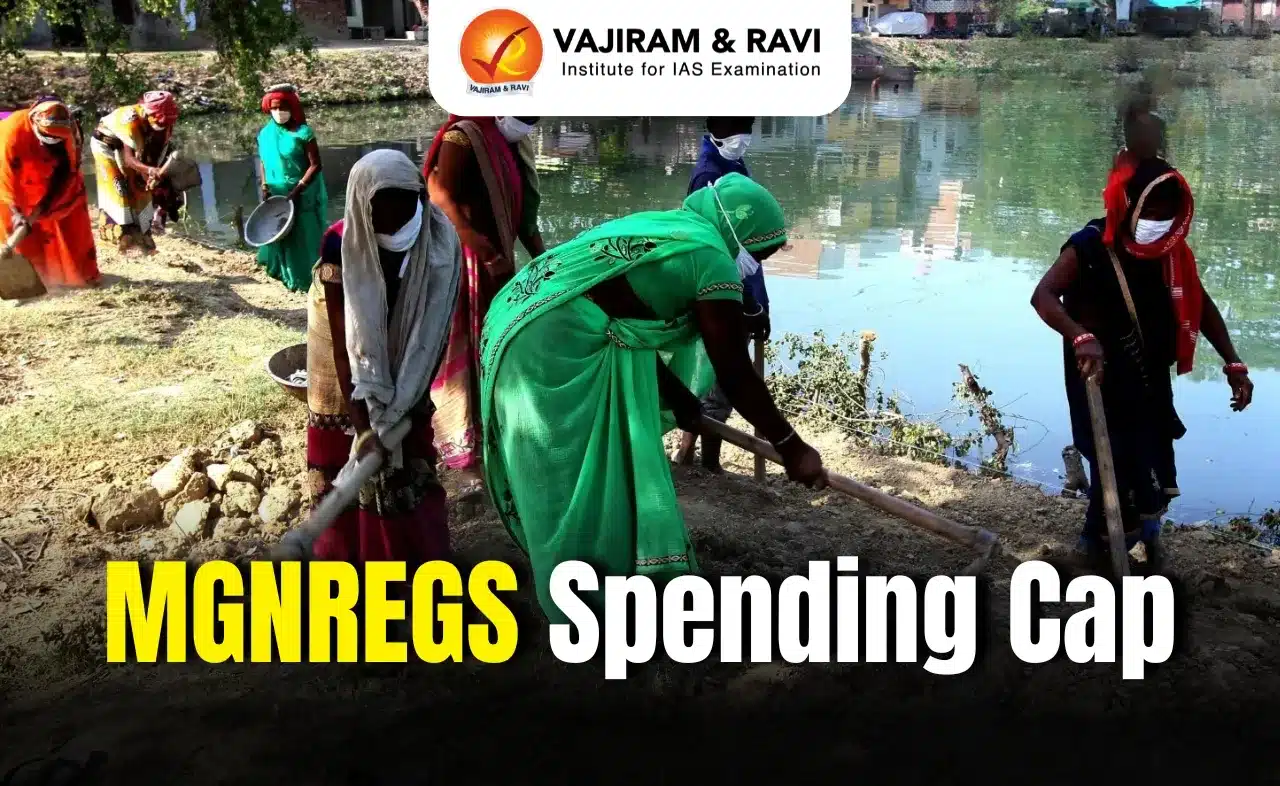What’s in today’s article?
- Why in News?
- Transgender Persons (Protection of Rights) Act, 2019
- Background of the case
- Karnataka HC’s Ruling
- Application Process for Certificate of Identity
Why in News?
Five years after the Transgender Persons (Protection of Rights) Act, 2019 was enacted, the Karnataka High Court intervened to allow a transgender woman to change her name and gender on her birth certificate.
This step was necessary as she was earlier denied the change, despite such provisions being explicitly allowed under the 2019 Act and its rules.
Transgender Persons (Protection of Rights) Act, 2019
- About
- The act allows transgender individuals to obtain a “certificate of identity” (Section 6) and revise it after sex-reassignment surgery (Section 7).
- The Act mandates that gender recorded on this certificate must appear on all official documents.
- It also explicitly permits changing the first name and gender in the birth certificate and other identity documents based on this certificate.
- Rules and Procedures Under the 2020 Rules
- The Transgender Persons (Protection of Rights) Rules, 2020 outline the procedure for obtaining the certificate and include a list of official documents eligible for revision, with the “Birth Certificate” as the first entry.
Background of the case
- Ms. X vs. State of Karnataka (2024)
- In Ms. X vs. State of Karnataka (2024), the petitioner, diagnosed with gender dysphoria, underwent sex-reassignment surgery and changed her name to align her official documents with her gender identity.
- She successfully updated her Aadhaar card, driving license, and passport but faced rejection when applying to change her name and gender on her birth certificate.
- Registrar’s Rejection
- The Registrar of Births and Deaths in Mangalore denied her request, citing Section 15 of the Registration of Births and Deaths Act, 1969.
- The provision permits changes to birth certificates only if the information is “erroneous” or entered “fraudulently or incorrectly.”
- Challenge in Karnataka High Court
- The petitioner challenged the restrictive interpretation of Section 15, arguing that it curtailed her right to life with dignity under Article 21 of the Constitution.
- She emphasized that inconsistent documentation creates a “dual life,” exposing her to harassment and discrimination.
- State’s Argument
- The Karnataka government maintained that the Registrar was bound by the limitations of the 1969 Act, which does not explicitly allow changes for reasons like gender identity updates.
Karnataka HC’s Ruling
- Conflict Between the 1969 Act and the 2019 Act
- The Registration of Births and Deaths Act, 1969 restricts changes to birth certificates to cases of “erroneous,” “fraudulent,” or “incorrect” entries (Section 15).
- However, the Karnataka HC found this general law to be in conflict with the Transgender Persons Act, 2019, a special law aimed at protecting transgender rights.
- Legal Principle: Special Law Prevails Over General Law
- The HC applied the principle of generalia specialibus non-derogant (“the special shall prevail over the general”), holding that the specific provisions of the 2019 Act override the general provisions of the 1969 Act.
- This interpretation ensures that the broader objectives of the 2019 Act are not obstructed by older general laws.
- HC’s Ruling
- The Karnataka HC directed the Registrar to recognize certificates issued under the Transgender Persons Act and update birth certificates with the revised name and gender identity.
- The court also emphasized that this must be followed “until suitable amendments are made to the 1969 Act.”
Application Process for Certificate of Identity
- Application Process
- Under the Transgender Persons Rules, individuals must file an application with the District Magistrate (DM) along with an affidavit declaring their gender identity.
- The DM will process the affidavit and issue an identification number as proof of application.
- Within 30 days, the DM will either issue the certificate of identity and a transgender identity card or reject the application with reasons.
- Revised Certificate for Post-Surgery Applicants
- Transgender individuals who undergo reassignment surgery can request a medical certificate from the Medical Superintendent or Chief Medical Officer.
- Using this medical certificate, they can reapply to the DM for a revised certificate of identity, which must be issued within 15 days.
- Exemption for Pre-Act Changes
- Individuals who recorded a change in gender before the Act came into force are not required to apply for a certificate of identity under the Act.
- Obligation to Update Official Documents
- Authorities responsible for issuing official documents (e.g., Aadhaar, driving license, birth certificate) must update the name, gender, photograph, or any related information within 15 days of receiving an application from a transgender person with a valid certificate of identity.
Q.1. What does the Karnataka High Court ruling on birth certificates signify for transgender rights?
The ruling affirms that transgender individuals can update their birth certificates to reflect their gender identity, overriding restrictive interpretations of older laws. It ensures that transgender persons’ rights to dignity and identity are protected under the Transgender Persons Act, 2019.
Q.2. What is the process for transgender individuals to update their identity documents in India?
Transgender individuals must apply for a certificate of identity through the District Magistrate, with an affidavit declaring their gender. After surgery, they can apply for a revised certificate, which authorities must use to update documents like Aadhaar, driving licenses, and birth certificates.
Last updated on June, 2025
→ UPSC Notification 2025 was released on 22nd January 2025.
→ UPSC Prelims Result 2025 is out now for the CSE held on 25 May 2025.
→ UPSC Prelims Question Paper 2025 and Unofficial Prelims Answer Key 2025 are available now.
→ UPSC Calendar 2026 is released on 15th May, 2025.
→ The UPSC Vacancy 2025 were released 1129, out of which 979 were for UPSC CSE and remaining 150 are for UPSC IFoS.
→ UPSC Mains 2025 will be conducted on 22nd August 2025.
→ UPSC Prelims 2026 will be conducted on 24th May, 2026 & UPSC Mains 2026 will be conducted on 21st August 2026.
→ The UPSC Selection Process is of 3 stages-Prelims, Mains and Interview.
→ UPSC Result 2024 is released with latest UPSC Marksheet 2024. Check Now!
→ UPSC Toppers List 2024 is released now. Shakti Dubey is UPSC AIR 1 2024 Topper.
→ Also check Best IAS Coaching in Delhi





















